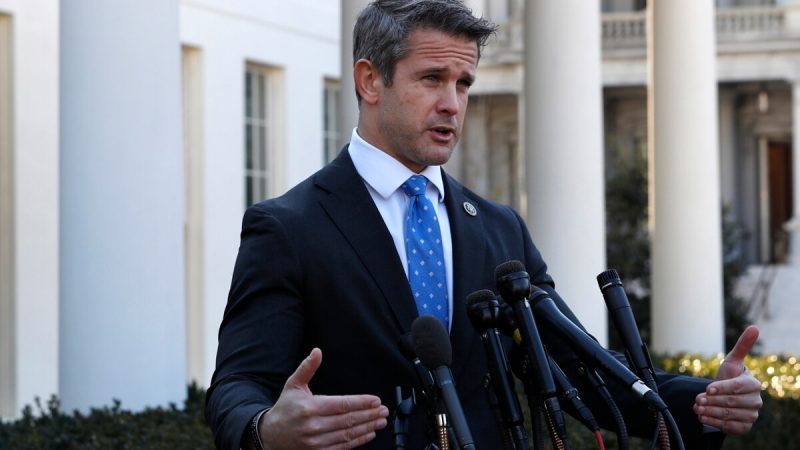Consent Is For Boys, Too: The Ethical Blind Spot Around Circumcision

The dialogue around sexual assault and campus rape these last couple of years has been a period of collective soul searching to define the boundaries of the body. In particular, the business of re-writing what, exactly, the social contract should say about consent has been the topic of much contention. The stop-gap conclusion seems to be the advent of “affirmative consent” meaning that accessing a person’s body for any purpose requires not just a passive lack of “no”, but the presence of an enthusiastic “yes!”. The logic behind this is, in part, to change the perception that people who are not of a mental capacity to give proper permission (for example, who are intoxicated) cannot enthusiastically affirm a sexual encounter, and will no longer be considered complicit to their own assault simply because “s/he didn’t say no”. This approach to addressing what many call a national sexual assault crisis has gone so far as to be introduced in a bill in California.
It’s an a priori assumption to say that (barring some kind of life-or-death duress) before touching, altering, or entering any person’s body one should be sure that they are 1. Aware of, and understand, what is being done to them and 2. Giving permission. Any act that violates these two conditions immediately enters the realm of criminal harm. You don’t give someone a tattoo while they’re blacked out — to do so would be assault. You don’t penetrate someone while they’re asleep or if they have not agreed to let you – that is rape. And before any kind of major procedure, a Doctor is required to obtain not just consent, but informed consent. Legal encyclopedia Nolo says that the distinction lies in the fact that “signing a form alone does not necessarily prove that the patient gave informed consent. The doctor must actually discuss the procedure and risks with the patient. And the patient must understand, to the extent possible, the risks he or she faces”. It also appears that, as a society, we largely agree that minors are, by virtue of their age and maturity level, not capable of fulfilling the first condition even if they give affirmative and enthusiastic consent (which is how we come about having statutory rape laws).
So let’s follow that through a couple of logical progressions. Should a parent have the legal ability to give consent for their child if, say, if their 12-year-old is willing to have a sexual relationship with someone in their 40’s? What about if a dominant strain of cultural practice demands that they do exactly that, as in the case of child brides? It’s a good bet that the consensus to that would be an emphatic “No”, and rightly so. Now then, should a parent be able to consent to a non-essential removal of a portion of their daughter’s sexual organs? International Human Rights groups agree that female circumcision, also known as Female Genital Mutilation or FGM is an urgent crisis, including the WHO which states that “Female Genital Mutilation is a global health issue, and can have devastating physical, psychological, and social consequences for women and girls”. Most Americans are horrified by this practice, and many organizations put quite a bit of their resources towards stopping the violence perpetrated on young girls.
Much of the conversation about consent has revolved around girls and women. And that’s great — these are crises that have to be addressed, as many women and children around the globe find themselves relatively voiceless compared to the men in their communities. However, there is a portion of the population that is equally voiceless – maybe more so in some cases – right here in America that have fallen into a collective blind spot. Yet, they are subject to the same kind of universal parental mandate — regardless of the child’s future wishes or consent — that child brides must face. And they, like FGM victims, have something taken from them which they never have a chance to consent to, and which they can never get back. Infant boys in North America are being subjected to unnecessary circumcisions at a rate of about 57%, and the “devastating physical, psychological, and social consequences” they face are more similar to those of the victims of female circumcision than we would like to admit. However, when it comes to questioning the consent rights of little boys, Americans are shockingly complacent, even zealously defensive, of the very same practice they condemn in other cultures. What gives?
The risks of a male circumcision are sometimes immediate, and always horrifying; they can include de-gloving (in which the entire skin of the penis sloughs off), hemorrhage (sometimes resulting in death, as infants have very little blood), gangrene, ulcers, and other infections such as MRSA and staphylococcus. However, as a penis will grow over 3 times in size as the baby matures other disastrous complications may arise with time, including curvatures, adhesions, scrotal fusion, buried penis, numbness, desensitization and a laundry list of other problems. Compare those to the terrifying list of complications of FGM, which according to WHO include severe pain (which is often brushed away in the case of males, saying they “won’t remember”), hemorrhage, labial fusion, and infections. You might start wondering why one is regarded as a human rights crisis and the other is a “routine procedure” in American hospitals. I am.
The issues above only address the physical consequences of genital cutting, but the psychological and social effects are often equally damaging. The moral justifications for circumcision, which commonly include reasoning such as that sexual partners won’t like an intact penis (the comments on this Reddit thread asking women their preference mostly disagree), that a boy should be like his father, or that it’s cleaner or healthier are absurdly shallow (even assuming they are reliable or true) compared to the risk of injury to one’s own child by performing an extremely invasive procedure on their most intimate body part without their consent. A statement released by UNICEF in 2013 on FGM echoes these superstitions, saying that “There is a social obligation to conform to the practice and a widespread belief that if they [families] do not, they are likely to pay a price that could include social exclusion, criticism, ridicule, stigma or the inability to find their daughters suitable marriage partners.”
In the context of Indonesia or African nations, where FGM is common, we might deem this logic downright ignorant, yet they are echoed in the justifications Americans give for male circumcision. Sadly, many men feel angry, bitter or resentful about their lack of control over their circumcision as adults. There is widespread silence on the psychological effects of male genital cutting, because often the very last thing a man with a damaged penis wants to do is make that fact public; frequently, even acknowledging it privately can be difficult. Studies have found that “…[t]here has been a movement of men who were circumcised as infants and have articulated their anger and sadness over having their genitals modified without their consent. …shame and denial is one major factor that limits the number of men who publicly express this belief. Studies of men who were circumcised in infancy have found that some men experienced symptoms of post-traumatic stress disorder, depression, anger, and intimacy problems that were directly associated with feelings about their circumcision”.
This is part of the superstitious perpetuation of circumcision: a deadly combination of pervasive shame, silence and unquestioning tradition – and it’s no different or better than the so-called barbaric perpetration of female genital cutting. We injure, mutilate and traumatize infants with no regard to their personal agency, with no consent and without question. I contacted Keith Salmon, an active member of the “Intactivist” movement against routine circumcision, which involves many first-hand victims of male circumcision. Keith feels that “It’s carried on for a variety of reasons, but notably due to most people’s inability to think critically about the things they do.”. When asked about the personal impact that his parent’s decision to circumcise has had on him, Keith says:
“I feel damaged and sexually violated in the most extreme way imaginable. The idea that my body and my sex life don’t belong to me is the most disgusting and despicable aspect of societies that cut children’s genitals. A parent’s preference on what her child’s penis should look like does NOT take precedence over the basic human rights of another person, regardless of age, since genital mutilation is a permanent injury that victims must deal with for the rest of their lives. The feeling of being sexually violated is a feeling no person should ever have to experience, especially at the hands of the people who are supposed to love and protect him”.
Given circumcision and the deep sense of violation those who have had the right of consent, let alone informed consent, revoked from them can suffer, I would argue that we are faced with an ethical crisis that almost no one is concerned about. Why are we leaving boys out of the zeitgeist demands for bodily integrity, psychological wholeness and agency? Obviously, not every circumcised male is against the procedure or suffers from either physical or psychological damage from it. But the stakes for circumcision are extremely high. Parents are reflexively cutting their babies’ genitals at risk of injury and trauma, and though the medical community has covered the procedure in the mantle of “health” , there’s good evidence that the benefits are greatly exaggerated. It’s time we consider the facts and question an unnecessary at best, life-alteringly harmful at worst, cosmetic procedure as best left in the past — along with other once-routine procedures such as blowing smoke up the ass in the case of drowning (yes, really.) After all, more and more doctors are considering the lack of ethics that male circumcision reflects, chiefly the Hippocratic Oath’s first tenet: “Do no harm”. Nordic Countries are strongly urging bans, and in Australia, while circumcision is still legal, public hospitals are banned from performing cosmetic circumcisions. The Canadian Pediatric Society just updated their position two days ago as well, saying it “does not recommend the routine circumcision of every newborn male.”
“A lot of times parents will say it’s a personal decision” Keith tells me. He believes circumcision violates the very essence of agency, the spirit of consent. “When your “personal” decision permanently affects another person, you’re in essence saying you own that person…. Even if it had health benefits (which is highly unlikely), the decision must be left to the person in question. That’s basic ethics. In my experience many people conflate actions which are valid parental decisions and those which are acts of ownership.”
Image via Fox 40







This piece is a good start but it disregards the value and functions of the foreskin. By using phrases such as “risk of injury and trauma”, the author gives the false impression that there is some way to excise a portion of one’s penile skin without damaging their genitals. Cutting off a portion of the genitals always results in some degree of physical damage.
I’m also bothered by the sexist double-speak. The author uses “FGM” when describing the forced genital cutting of female minors and “male circumcision” when describing the forced genital cutting of male minors. That’s kind of like calling forced sexual contact “rape” for females but “surprise sex” for males. I doubt it was intentional but it is nevertheless jarring to see it in a piece focused on inequality and sexism.
Finally, it’s a shame that the author omits any mention of intersex genital mutilation since intersex individuals are also entitled to equal protection from forced genital cutting yet tend to be denied that protection just like male minors.
Excellent article Lydia Alpural-Sullivan.
You have very skillfully written about this issue without pandering to “parental decisions” and other nonsense that perpetuates the most common form of male genital mutilation. Thank you!
Very well-written piece. Your examples are logical and well-thought out. Bravo!
Thank you for a thoughtful and highly accurate article about the harms.of forced genital cutting. Thank you for listening to and taking seriously though experiences of its victims.
Circumcision has done me no favors! I love when my wife and I partake in one of the most intimate and beautiful experiences in life, but for me it can be a very dark experience on occasion because part of my body was altered against my will.
Without the mechanical lubrication provided by a foreskin, I have to use an artificial lubricant or sex would be too painful for my wife and me. Climax is not the same for me as it is for my wife or for Natural (Intact) males. They describe orgasm as a wave all over the body, while a mutilated male (circumcised) expresses it as a singular explosion (bordering on pain) from the penis. Imagine not wanting your wife to touch you as you lay crying on your back from shame and pain due to sores caused by abrasion and/or at times a complete and total loss of erection and feeling.
The foreskin contains 20,000 fine touch nerves (like in your fingers) and provides protection of the glans (head) keeping it soft and sponge like, all in an effort to ensure everything works properly. My parent’s chose this painful and unsatisfactory sex life for me and my wife and I simply cannot fathom why. I would never have chosen to have my foreskin removed. Only 1/16,667 intact males will have a problem with their foreskin, 99% of which can easily be treated without surgery. One hundred and seventeen babies die from circumcision a year in the US, which equates to 9/100,000 babies that die each year from a cosmetic surgery. Men have lost their penis, glans, and suffered from deformity caused by the operation performed when they were infants. It isn’t right that these children pay the price for a decision that their parents made, a decision that should be left up to the owner of the penis. Even those who survive still have problems like mine, though they are seldom discussed.
I had to remove all my sources or my post would be considered spam.
Hi Jonathon,
I would have liked to touch on intersex GM but for the sake of sticking to a concise, clear point and making an article brief enough that people would actually read it, I think it’s best left for another piece. it’s a good point to bring up and similarly worthy of attention, though. Thank you for commenting on it.
I’d also like to mention: the reason for using “male circumcision” rather than FGM is that I believe that, for people unfamiliar with the topic, it may alienate them from the reality of what they’re supporting. By that I mean, people who are A-OK with circumcision might make a mental distinction if I refer to circumcision (What they call it) as Male Genital Mutilation, which it is. (to which I imagine people would say “But thats TOTALLY DIFFERENT from what I did/plan to do to my son!” … never underestimate the power of denial) Instead I’d like people to come to their own realization that this thing rather benignly called “circumcision” is more or less equivalent to the less friendly sounding Female Genital Mutilation. I don’t wish to entirely alienate people who are unquestioningly pro-circumcision right off the bat, because I feel that’s a less effective way of persuading them to consider what they believe and why and potentially changing that belief.
Thanks for your thoughts, I aprreciate the feedback!
Hi Lydia, Thank you.
This was a pleasure to read and I took advantage of the embeds (nice touch). I understand choosing terms FGM and male circumcision. And I like the later transition to female genital cutting and male genital cutting, upon describing deep trauma. As there can be more than one term for the same thing, then perhaps the seed is planted to accept MGM. There’s also the problem of dealing with framed words. Circumcision has been framed repeatedly as being good, beneficial, healthy, better, masculine, attractive… so anytime one reads circumcision, their mind immediately accesses all the positive associations. What they read following circumcision, if it is contrary to its framing, is not really noticed and absorbed. Activating the framing of circumcision also reinforces this framing. I count 19 times circumcision was used in this article. It became jarring for me. I really hate this word. It’s sounds so soft and pretty, like lace or rabbit fur for the penis. It say nothing about quality, intention, or looks, just an act to cut around, innocuous. When I see circumcision, I see 3″C’s” meaning cut, cut, cut! Being circumcised, I’m more comfortable saying CircuMutilation which is truer, more real, and healing (for me).
About framing of words pls. see: George Lakoff “moral politics” on youtube.